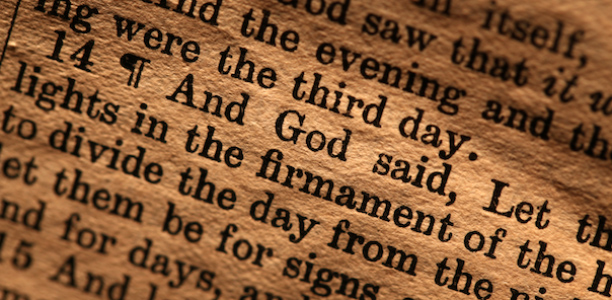By David Faust
 Friends are one of God’s greatest gifts. We need friends when we are young and when we are old, when things go well and when everything falls apart. Too many of us go through life like passengers on a bus. Others enter our lives and travel with us for a while, then depart with little more than a few polite words being exchanged.
Friends are one of God’s greatest gifts. We need friends when we are young and when we are old, when things go well and when everything falls apart. Too many of us go through life like passengers on a bus. Others enter our lives and travel with us for a while, then depart with little more than a few polite words being exchanged.
True friends relieve loneliness. Helen Keller was blind, but she said, “I would rather walk with a friend in the dark than walk alone in the light.”
True friends increase productivity. “Two are better than one because they have a good return for their labor” (Ecclesiastes 4:9). John Maxwell described a sign on a busy executive’s desk that said, “If I had it to do all over again, I think I would have asked for help!”
True friends provide accountability. Like spiritual sandpaper, they smooth out our rough edges. We all need trustworthy advisers who lovingly confront us when our attitudes need adjustment—who dare to ask honest questions about our walk with God and our personal integrity. Enemies stab people in the back, but as Oscar Wilde pointed out, “True friends stab you in the front.”
Unselfish Love
Many examples of friendship appear in God’s Word. Moses depended on his trusted aide, Joshua. Jesus’ disciples called him “Lord,” but he didn’t hesitate to call them “friends” (John 15:14, 15). Paul relied on trusted coworkers like Barnabas, Silas, and Timothy.
Here’s a biblical description of one of the most famous friendships of all time: “Jonathan became one in spirit with David, and he loved him as himself” (1 Samuel 18:1).
Sometimes we find friends in unexpected places. It’s surprising these two men would get along at all because Jonathan’s father, King Saul, considered David an enemy. Yet David and Jonathan developed such a strong bond that the Scripture repeatedly refers to their friendship as a “covenant”—a solemn, binding promise (18:3; 20:16, 17; 23:18).
In an act of amazing generosity, Jonathan gave David his robe (a symbol of royalty), his tunic (a shirt-like garment), and even his sword, bow, and belt (1 Samuel 18:4). For a warrior like Jonathan to give up his sword and bow was like a fisherman giving away his favorite rod and reel or a professional baseball player giving up his bat and glove.
True friends meet each other’s practical needs. It sounds noble to say, “I’d die for my friends,” but most of the time we give up our lives in small pieces by saying, “I’ll give you a ride,” “I’ll lend you my lawnmower,” “I’ll help you find a job,” or “I’ll try to see your point of view.”
Consistent Loyalty
Someone has said that a real friend walks in when the rest of the world walks out. “A friend loves at all times” (Proverbs 17:17). Jonathan had David’s back. He remained loyal and stood up for his friend even when King Saul badmouthed David and tried to kill him.
When Saul’s violent threats made it impossible for David and Jonathan to spend time together anymore, they tearfully said goodbye and promised to remain friends no matter what (1 Samuel 20:41, 42). Years later David remembered their covenant and showed kindness to Jonathan’s family even after his friend was dead (2 Samuel 1:25-27; 9:1-13).
David and Jonathan remind us about a principle that remains relevant in any age: If you want to have a friend, first you must be one.
1. Has God given you any true friendships like the kind David and Jonathan shared?
2. What steps could you take to become a more loving, loyal friend?
David Faust serves as the Associate Minister at East 91st Street Christian Church in Indianapolis, Indiana.
The Lookout’s Bible Reading Plan for May 17, 2015
Use this guide to read through the Bible in 12 months. Follow David Faust’s comments on the highlighted text in every issue of The Lookout.
Mark 12:35-44
2 Corinthians 10
Psalm 105
1 Samuel 24, 25
Mark 13:1-13
2 Corinthians 11:1-15
Psalm 106:1-23
1 Samuel 26–28
Mark 13:14-31
2 Corinthians 11:16-33
Psalm 106:24-48
1 Samuel 29–31
Mark 13:32-37
2 Corinthians 12:1-10
Psalm 107
2 Samuel 1, 2
Mark 14:1-11
2 Corinthians 12:11-21
Psalm 108
2 Samuel 3, 4
Mark 14:12-31
2 Corinthians 13
Psalm 109
2 Samuel 5–7



Comments: no replies